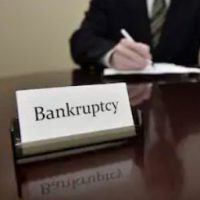Is Chapter 7 the Right Bankruptcy for You?

When debt becomes overwhelming, people reach for a lifeline, and filing for bankruptcy might be just the thing to grasp for. With a Chapter 7 bankruptcy, our clients can quickly eliminate many unsecured debts and begin afresh. However, a Chapter 7 is not the only option, and we believe that our clients are best served when they make informed decisions about their financial future. Below, our South Florida bankruptcy attorneys ask three questions every consumer should answer before making up their mind.
Can You Eliminate Your Debts?
A Chapter 7 does not get rid of all debt. Instead, it can eliminate most unsecured debts, like:
- Credit cards
- Personal loans
- Medical debt
By contrast, you cannot wipe out secured debts, which are loans backed by collateral. For example, a car loan is backed by the car itself. A home mortgage is backed by the home. When you default, your lender can seize the collateral. Because this security interest in the collateral survives bankruptcy, a lender can always foreclose, so you can’t eliminate the debt without giving up the collateral.
Other unsecured debts are excluded, such as child support or alimony arrearages. You also cannot eliminate some court judgments against you, and student loans are very difficult to discharge.
A Chapter 13 might be more appropriate if you have debts that don’t qualify for discharge. In this bankruptcy, you use your disposable income to pay your creditors for 3-5 years. Fortunately, a debtor can spread out overdue mortgage or child support payments over the life of the payment plan, which gives them time to catch up.
Do You Have Non-Exempt Property?
In exchange for discharging qualifying debts, a debtor in Chapter 7 will need to turn over property that they own, which will be distributed to their creditors. If you have $20,000 sitting in a checking account, as an example, then the trustee might give some (or all) to your creditors.
There is an important limitation: Florida provides a list of exemptions that will shield property from the trustee. The most important is the homestead exemption. Most residents can exempt the full value of their home, although those who have recently moved here can exempt a lesser amount.
Other exemptions include $1,000 for personal property, which can increase to $4,000 if you don’t use the homestead exemption. Other exemptions include education and health savings and up to $1,000 in a motor vehicle.
Are You Prepared for the Credit Hit?
There is no denying it: filing for bankruptcy will impact your life. For one, a Chapter 7 stays on your credit report for 10 years from the day you file. Over time, its impact will lessen, but it might be hard for you to get a new credit card for the first couple of years after filing.
For another, your credit score will also fall. However, it is all relative. If you have multiple accounts in collections, your score is probably terrible already.
Consider Your Options with a South Florida Bankruptcy Attorney
The Plantation bankruptcy attorneys at Nowack & Olson, PLLC will review your situation to help determine the best path forward. Contact us today to schedule a free consultation.
